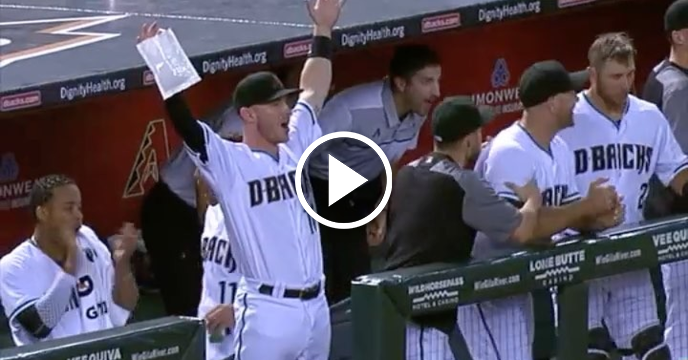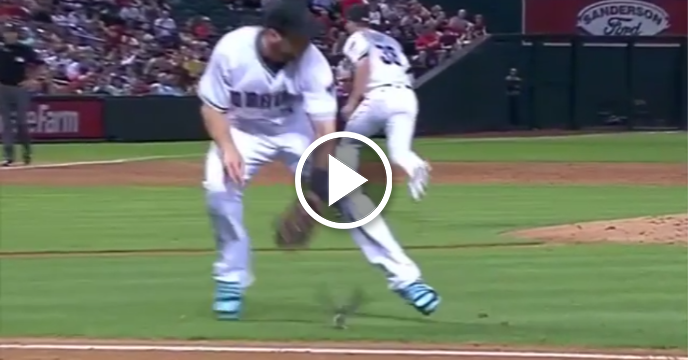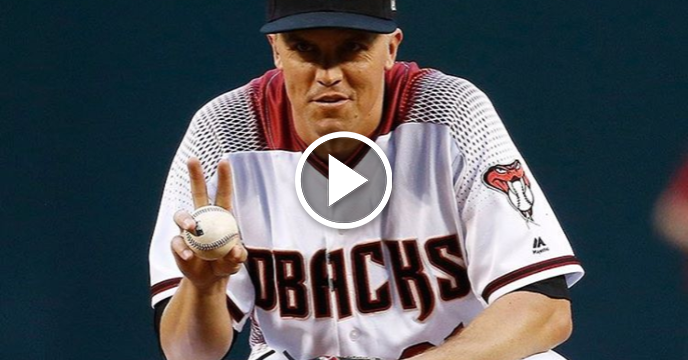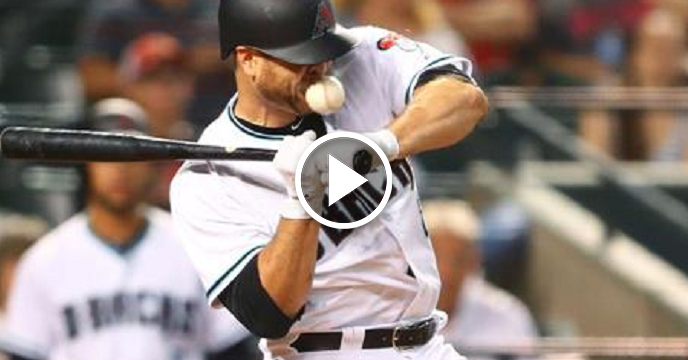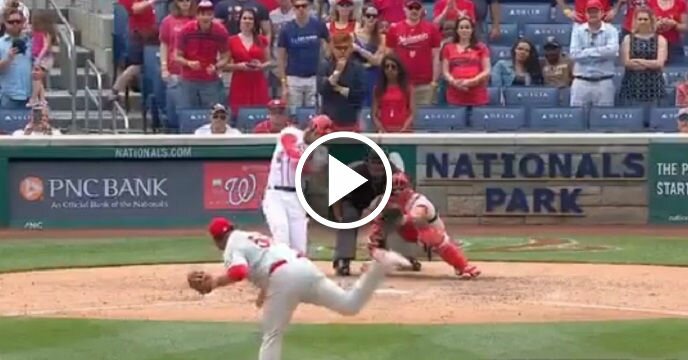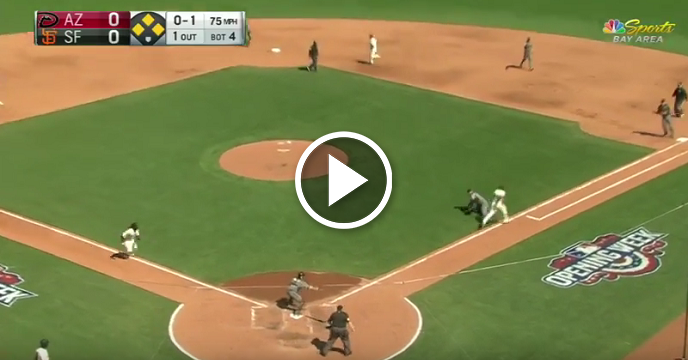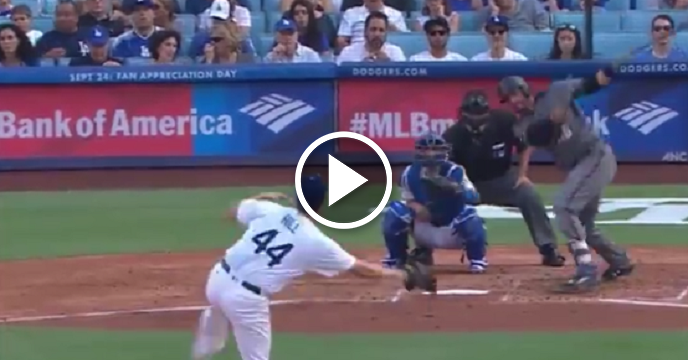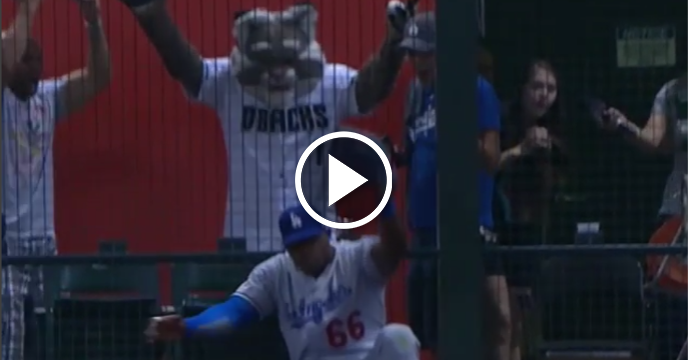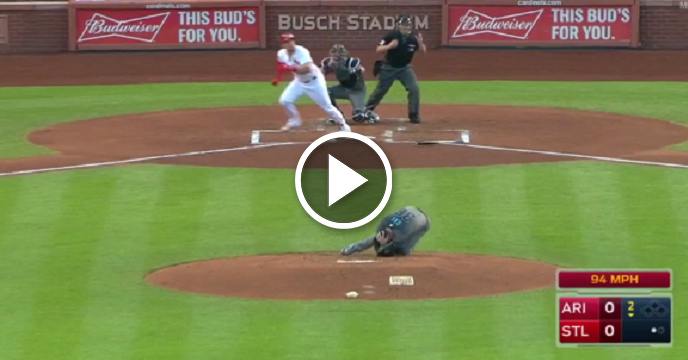In the 2011 season, the Arizona Diamondbacks were a team that made a habit of coming back late in games and winning on their way to the NL Western Division crown. They led the league in that category last year, and their penchant for clutch scoring was arguably the biggest contributor to their trip to the playoffs, capping off a season which saw them begin the year as favorites to finish in the division basement.
This season, it seems, is a mirror image of the last one. The Diamondbacks have started out the year red hot in terms of scoring early, notching at least one run in the first inning in 10 of their first 12 games. After that, however, things quiet down significantly for them. They’ve only scored in the second inning twice, the third inning twice, the fourth inning twice, and three times in the eighth inning.
Those numbers are all not too great, but the one that is the most frightening is this one: out of all 12 games that the Diamondbacks have played this year, they have scored in the ninth inning a grand total of…….zero times. That’s right. The team that led the league in comeback wins a season ago has scored exactly zero runs in the ninth inning, and that trend continued today as they scored once in the first inning and then were held off the board for the remainder of the contest.
Here are some more frightening facts about the Diamondbacks as they pass the dozen game mark with a 7-5 record:
-They have scored 17 runs in the first inning, which is nearly double the number of runs they have scored in their second most prosperous inning, the sixth.
-In innings six through nine this year (a total of 45 frames, for the sake of clarity), they have scored 16 runs, which isn’t even equal to how many they have scored in the first inning.
-Out of their last 30 innings played, the Diamondbacks have scored more than one run twice, and both of those innings were two run frames.
-Their best inning of the season was the third inning of their series opener against the Colorado Rockies, where they scored four runs in the third inning. They have scored three in an inning on three different occasions.
-Combined, Justin Upton and Willie Bloomquist have had 72 at-bats and have combined to drive in one run. Bloomquist is the one who did it, despite batting leadoff while Upton has batted almost exclusively in the third spot in the order.
Those numbers don’t exactly fill any observer with much confidence, do they? Granted, we aren’t even 1/10th of the way through this season yet, so these trends could very well reverse themselves in short order, but with the health of Upton and Chris Young up in the air for the moment, things may have to be shaken up sooner rather than later.
One possible way that manager Kirk Gibson could shake things up could be to continue to stay aggressive on the basepaths. AJ Pollock, playing in his first game today in relief of Young, had a great jump off of second base in the eighth inning, but he ended up sliding through the bag and getting tagged out. That aggressiveness should be encouraged in the youngster, who has a good set of wheels and apparently has a good understanding of how to read pick-off moves if one can take today’s small sample size into account. Having Eric Young as a first base coach should help as well.
Ryan Roberts needs to get into the action in that area as well, as he still has an OBP of less than .300 and only has two steals so far on the year.
When Young and Upton are fully healed, another potential idea could be to utilize the bench more in the late innings if the starters are struggling. For instance, in today’s game Lyle Overbay was already 0-for-3 and hadn’t really hit a ball hard all day when he stepped up to the plate with the tying run on first base and one out. Bringing in a guy like Paul Goldschmidt, who only has one HR so far this year but has some tremendous pop, could have been a good idea, and his more patient approach at the plate so far this season also could have been beneficial of Juan Cruz had any difficulty finding the strike zone.
The same principle could apply to Henry Blanco if Gibson wants to make a double switch in the late innings, as the veteran backstop showed last year that he still has some serious pop in his bat.
As stated previously, this team still has quite a bit of baseball to play before all is said and done. These trends are influenced by the fact that they have played six games in ballparks and environments that weren’t hospitable to hitting (spacious and cold Petco Park in San Diego and freezing cold and snowy Coors Field in Denver), but that still doesn’t change the fact that the Diamondbacks are having difficulty cashing in on scoring opportunities, and are especially struggling when it comes to scoring late in games.
With the team’s reputation for late heroics, that will likely change, but it will need to happen soon if they are going to keep pace with the Los Angeles Dodgers in a wild NL West.
 Share
Share 

